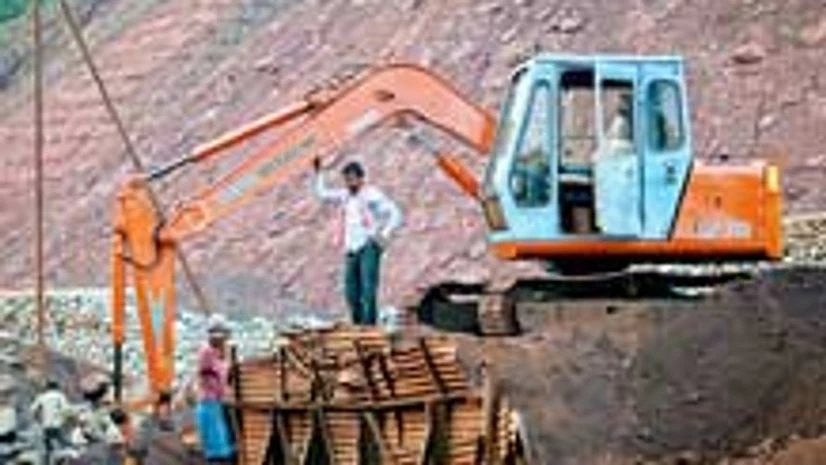The Union government is open to changing the rules that make it mandatory for states to obtain a conditional clearance under the Forest (Conservation) Act, 1980, and Wild Life (Protection) Act, 1972, before auctioning a mining licence (ML) or composite licence.
Moreover, the Centre is likely to reserve the end-use of composite licence auction for non-coal minerals if state governments ask for it. "We are willing to reserve the end-use of a the composite licence auction, but only if states demand it," said a senior official, who did not wish to be named.
According to the recently introduced mineral auction rules -- made according to the Mines and Minerals (Development and Regulation) Amendment (MMDRA) Act, 2015 -- a state government will need to obtain a conditional clearance "on the basis of recommendation of the committee constituted for the purposes of forest clearance under the Forest (Conservation) Act, 1980, and wildlife clearance under the Wild Life (Protection) Act, 1972, or any other law for the time being in force, so as to enable commencement of operations (auction)".
Also Read
State governments have opposed this, saying it is ultimately the responsibility of the company undertaking the project to obtain such clearances before auction of any ML or composite licence.
Moreover, according to the proposed rules, a state "may in its discretion identify a specific end-use" as a prerequisite for auction of mining licence (ML) only.
However, no such discretionary powers have been given to state governments in case of auction of composite licence. The concept of composite licence -- a prospecting licence (PL)-cum-ML for an area where there is inadequate evidence of mineral contents -- was introduced for the first time in the MMDRA Act.
A reconnaissance permit (RP) is granted for preliminary prospecting through regional, aerial, geophysical or geochemical surveys and geological mapping. A PL is granted for exploring, locating and proving mineral deposits. An ML is required finally to extract minerals.
Many steel companies that want this end-use provision for a composite licence are worried that merchant miners, in much better shape, will bid very aggressively making it unviable for steel companies, which are already facing a slowdown.
Most of the iron ore mines of Odisha - which produces a majority of the nation's output - will be put up for auction for composite licences, the state government gave an extension to the remaining 26 iron-ore MLs a few weeks ago.
Before enactment of MMDRA , states had the discretionary powers to hand over these licences. Between 2002 and 2008, Odisha signed 49 memoranda of understanding (MoUs) with steel companies, asking them to build plants and assuring an iron ore mine or proper supply.
Most of these companies are yet to get a mine according to the MoU, which stands redundant with enactment of MMDRA Act, 2015, for their now - operational steel plants. All such companies will have to participate in an auction to secure a mine.

)
